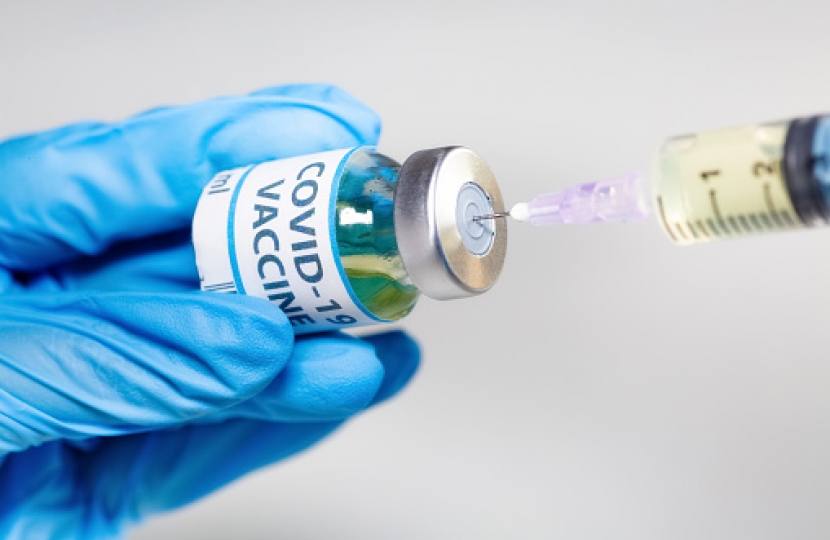
The second COVID-19 vaccine has been authorised for use in the UK, allowing a significant expansion of the immunisation programme with hundreds more vaccination sites opening in the coming weeks and months to protect those most at risk from the virus.
The UK regulator has accepted the recommendation of the Commission on Human Medicines and authorised the Oxford University/AstraZeneca COVID-19 vaccine. This follows months of rigorous clinical trials involving tens of thousands of people and an extensive analysis of the vaccine’s safety, quality and effectiveness by the Medicines and Healthcare products Regulatory Agency (MHRA).
The vaccine is highly effective in preventing disease, including in the elderly, and vaccinations will begin from next week.
The UK was the first in the world to sign an agreement with Oxford University/AstraZeneca, securing access to 100 million doses of the vaccine on behalf of the whole of the UK, crown dependencies and overseas territories. Hundreds of thousands of doses are available from Monday 4 January with more to be delivered over the coming weeks and months so that, alongside the existing Pfizer/BioNTech vaccine, the UK’s vaccination programme can continue its steady expansion over the first part of next year.
The vaccine, which was backed by significant government funding, will be available for free across the UK and the government is working with the devolved administrations to ensure it is deployed fairly across the UK.
Welcoming the announcement, Richard said: "This is fantastic news and is a massive step forward in our fight against coronavirus. My thanks goes to all those who worked on the vaccine and took part in trials. We have already vaccinated hundreds of thousands of vulnerable people and the new Oxford jab will allow us to accelerate our vaccination plan, allowing us to return to normality in the future."
In line with the recommendations of the JCVI, the vaccine will be rolled out to the priority groups including care home residents and staff, people over 80 and health and care workers, then to the rest of the population in order of age and risk, including those who are clinically extremely vulnerable. The vaccine can be stored at fridge temperatures, between 2 and 8 degrees, making it easier to distribute to care homes and other locations across the UK.
The vaccine will be deployed through similar methods as the Pfizer/BioNTech vaccine, including:
- hospital hubs for NHS and care staff and older patients to get vaccinated
- local community services with local teams and GPs already signing up to take part in the programme
- vaccination centres across the country, ensuring people can access a vaccine regardless of where they live
In 2016, the UK Vaccine Network provided funding to support Oxford University to develop a vaccine for MERS. This vaccine technology was rapidly repurposed to develop a COVID-19 vaccine using initial funding from a National Institute for Health Research (NIHR) and UK Research and Innovation (UKRI) research call launched in February. In April the government announced £20 million of further funding so that the Oxford clinical trials could commence immediately. Since then the government has bought 100 million doses of the final vaccine product via further investment.
The UK government is making every effort to increase the UK’s vaccine manufacturing capability to ensure vaccines are widely available to the public. As a result, the vaccine is being made in Oxfordshire and Staffordshire, with filling into vials at sites in North Wales. From the end of 2021, the UK will have 2 new permanent manufacturing sites each with the capability to manufacture tens of millions of doses within 6 months.
Through the Vaccines Taskforce, the UK has secured early access to 357 million doses of 7 of the most promising vaccines so far. To date, the government has invested over £230 million into manufacturing a successful vaccine. In the Chancellor’s Spending Review, published on 25 November, it was announced that the government has made more than £6 billion available to develop and procure successful vaccines.
